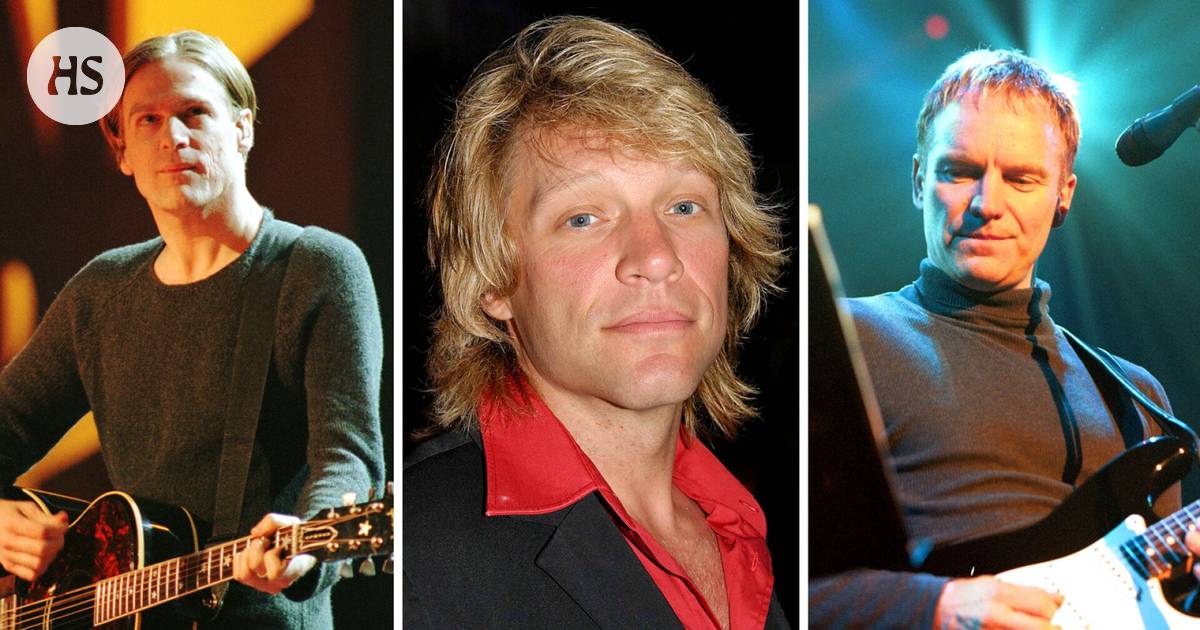Music | The record company also plans to have artists sing with the help of artificial intelligence in a language they don’t know how to speak
The summary is made by artificial intelligence and checked by a human.
Universal uses an artificial intelligence application to model artists’ voices.
The application can be used to correct failed vocal parts and make the soloist sing duets with his younger self.
Modelings created with artificial intelligence developed by the Soundlabs company are not made available for public use.
The application will no longer be used in Suomen Universal’s productions.
World Universal Music, one of the largest record companies, has implemented an artificial intelligence application that can be used to model an artist’s voice.
Applications made for a similar purpose have been on the market for some time, but Universal is the first record company to openly talk about the use of artificial intelligence in its own production.
Universal has announced together with Soundlabs, the company that developed the artificial intelligence application, that the modeled sounds are used only by Universal’s artists and producers and are not made available for public use.
Soundlabs is from the USA Brian Transeaun founded by a technology company specializing in music production applications. Transeau is better known by his stage name BTwith which he has been making electronic dance music since the mid-1990s.
In music production the artificial intelligence applications used in the processing of vocal parts can analyze the singer’s voice and, based on the collected data, create a model that sounds like the singer’s own voice.
Universal’s Deputy Director of Strategic Technology Chris Horton says in the company’s press release that the application allows singers to “sing in a language they don’t know how to speak or sing duets with their younger selves”. In addition, the application can be used to correct failed vocal parts.
Universal has not said in more detail when and in which recordings the application will be used. One possible target is in the recording sessions of older artists. The muscles of the larynx used in voice production weaken with age, and the singer can no longer reach the same high or low sounds as when he was younger. In this way, the artists’ recording career could be extended for several years.
Finland’s Universal Music reports that the artificial intelligence application is not currently in use in the company’s domestic production, and the timetable for its introduction has not yet been announced.
In principle, however, it could be possible that, for example, Jon Bon Jovin the voice would sing in Finnish.
Universal is the largest of the three multinational record companies that dominate the Finnish recording market, with a market share of just under 36 percent.
Universal has appeared in public as an advocate for the ethical use of artificial intelligence and defended the rights of artists and songwriters against unauthorized artificial intelligence modeling. In addition to the creators of the music, the record companies are also left without compensation if the artist’s voice has been modeled on the music without permission.
Major record labels have also demanded that AI music companies stop using copyrighted music in AI development.
The problems with the use of artificial intelligence came to the fore in the spring in Britain, when in 1991 the deceased Steve Marriottin the sound was modeled into a new song. The widow and rights holder of the singer and guitarist who rose to fame in the bands Small Faces and Humble Pie in the 1960s and 1970s Toni Marriott had given his consent to voice modeling. Toni Marriott married Steve Marriott two years before his death.
Marriott’s children from previous marriages and relationships have objected to the project, which they say is exploitative.
“It was bad enough that he was deprived while he was alive,” the singer’s daughter Mollie Marriott says in a published in June Mojon in the interview.
Mollie Marriott feels that the AI-generated vocals lack the liveliness, rawness and soulfulness of her father’s original singing voice.
Marriott’s children have publicly supported several long-standing rock musicians such as Peter Framptonin, Robert Plantin, David Gilmourin, Paul Weller and by Bryan Adams.

Ahmed Rakib Blog | Activity
Bored Panda – The Only Magazine For Pandas
Marketing and Sports Information staying connected from home – The Volante
Alumni Feedback Survey –
Tipping in Portugal: The Art of Leaving Coins
Randall Ashley's Profile page
condorbeam3
roscoecrouch's Profile
Follow Ike Drake on Halaltrip timeline | Halal Trip
FitDay Discussion Boards – View Profile: tristanfitzpatrick
Bored Panda – The Only Magazine For Pandas
Page not found – INSIDE.COM, Inc
StockTune | Startup Europe
ASIATOGEL88: Keluarkan Potensi Permainan Anda di Asia
Batikjitu: Layanan Togel Online Terbaik Untuk Pecinta Judi
Üye: bangleswan8 – MS Reklam
millicentslaughter | Gravatar
Certificate verification problem detected
Emery Dahlgaard – Credly
Sbobet88: Tempat Terpopuler Untuk Taruhan Olahraga Online – YOU LIKE IT
Petualangan Kasino Terhebat Anda: Dunia Kemenangan NAGA95 – physicslogics.
Certificate verification problem detected
Karaokefullsalon on Yummly
Tech Power: Merevolusi Operasional Bandar Togel Online – hertkohollowhelpers
Manchester Grab Hire – 53 King Street, Manchester, Greater Manchester M2 4NH – Cybo
Aura Vaughn's Profile page
Tren Teknologi: Membentuk Masa Depan Operasional Bandar Togel – iranglassshow
Profile of florenciojoseph
Message visiteur de ivonnecolbert – Forums Auto de Motorlegend
Just a moment…